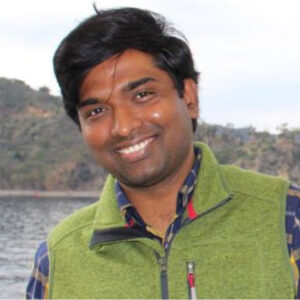 Ravi Vangapalli, General Partner of Arvy Capital
Ravi Vangapalli, General Partner of Arvy Capital
Q: Describe what your current company does?
A: My current company is Arvy Capital. It is a quant fund company, primarily focusing on building quantitative trading algorithms. Traditionally, there are only two ways to make money – fundamental analysis and technical analysis. But both models are not scalable and not predictable. If you really see the market, it is like a plumbing system with millions of buyers and sellers where money flows. But there is not a deterministic system out there. So that’s what piqued my interest almost a decade ago to build a deterministic model to provide alpha returns in the market.
Q: What was the inspiration for your company?
A: The inspiration is more like an inner calling. Every day there is this feeling that I haven’t solved the right problem yet or made a difference. It’s about having a framework for evaluating ideas and what problems to work on. Once you’re deeply connected to one, you start building on it. For me, I was not familiar with investing in stocks because the market conditions are always unpredictable. Hence I started thinking about how I could make investing a deterministic system that is always reliable and repeatable.
Q: How is your company funded and how does it make money?
A: There are two ways for funding. Since I am structuring it as a fund, like a hedge fund, I raise money from investors traditionally. But at the same time, I am also building the technology, so I need to take venture funding to build the technology product for customers.
Q: What has been your biggest win so far?
A: The biggest win is the breakthrough in the technology. I was able to design a highly accurate, computation-based deterministic system that provides alpha returns irrespective of market conditions. I never anticipated it would work out so well when I started it a decade ago.
Q: What has been your biggest mistake?
A: Oh, tons of mistakes, especially from previous failed ventures. Like when a co-founder left, I shut down immediately instead of staying connected to the vision. Or not planning for venture funding properly for a hardware company. Or lacking a proper team and execution. The biggest lesson is you have to minimize risk as much as possible in every venture.
Q: What do you like most and least about being a founder?
A: The most favorite thing is navigating the uncharted territory and unknown – it’s exciting, an adrenaline rush not knowing if you’ll make it day-to-day. The most frustrating part is convincing people that this is the right thing and finding that first set of champions and believers around you.
Q: What has been your biggest barrier to progress?
A: In the initial 4-5 years, funding was a barrier, now it’s self-sustaining. The biggest shift was going from being a technologist building consumer products to the financial markets – it was uncharted territory, but navigating that is my strength as a founder.
Q: If you weren’t a founder, what else would you be doing?
A: I would have invented something. Or joined a company with a strong mission at an early stage as a first employee to build something for them. My core nature is inventing and solving problems in different ways.
Q: What’s your best hack for the demands of a startup?
A: Spend time in nature. I hike 100 miles a week to decompress stress levels. It allows you to have an inner dialogue with yourself, examining your thought process, ideas, what’s going right/wrong, and what to test next.
Q: What do founders need in your city?
A: Regular, accessible networking events. Founders who recently raised pre-seed money speaking on their fundraising challenges and product-market struggles after raising. Peer-driven stories and collaborative problem-solving sessions really helps the founder community.
